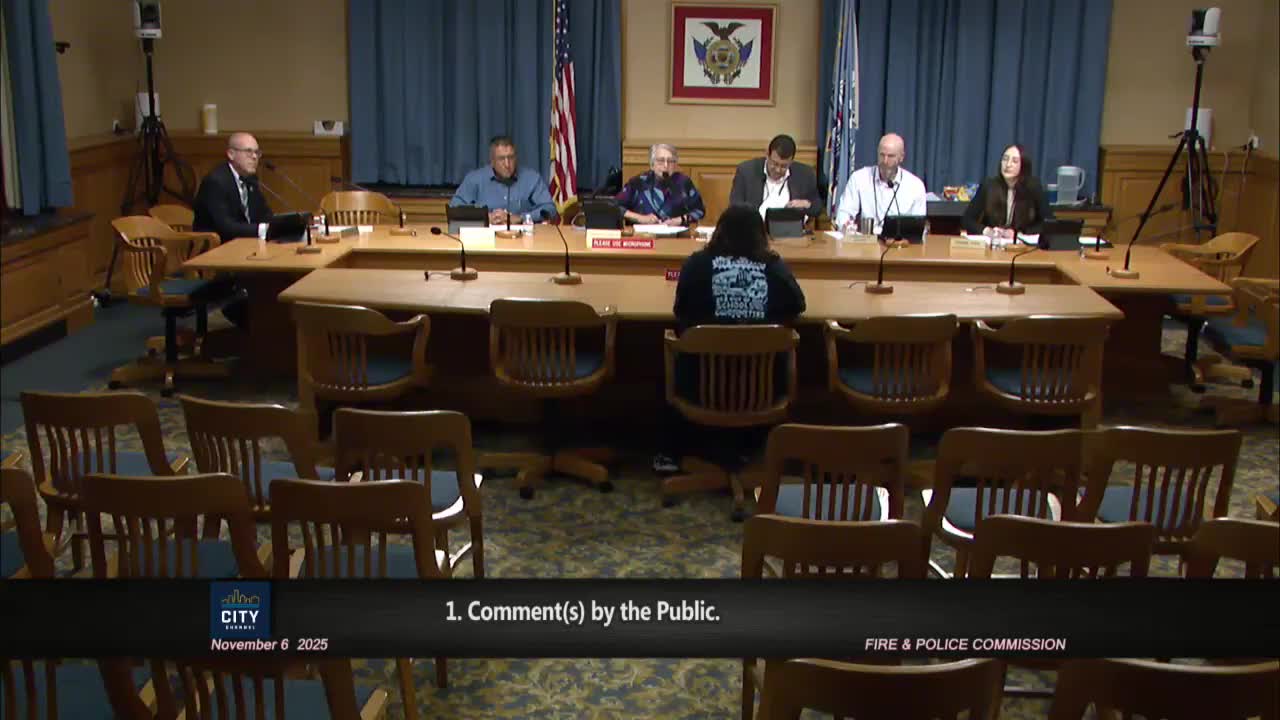Students and advocates urge transparency, limits on school resource officers at FPC meeting
Get AI-powered insights, summaries, and transcripts
Subscribe
Summary
Several youth advocates and community members told the Fire and Police Commission they oppose school resource officers in Milwaukee Public Schools, called Act 12 harmful, and requested clearer complaint processes and stronger, ongoing training for officers working with students.
Several speakers at the Nov. 6 Milwaukee Fire and Police Commission meeting urged the commission to increase transparency and limit the role of school resource officers (SROs) in Milwaukee Public Schools.
Lydia Espana, an organizer with Voces de la Frontera speaking for Youth Empowered in the Struggle, said the 2020 school board decision to remove officers from schools was a positive step and called Act 12, the Wisconsin law that requires SROs in high schools, a rollback of that progress. "Police in schools do not make [students] feel safer," Espana said, and she criticized the training requirement, noting, "It's outrageous that officers assigned to work with children receive only 40 hours of training to become school resource officers." She asked the commission to ensure any officers in schools are transparent and accountable to students, families and staff.
Nicholas Doherty, presenting testimony and student-submitted writings, cited research and federal findings about racial disparities in school discipline and said Milwaukee has a documented history of disproportionate punishment for Black students. He argued that SROs were historically introduced during desegregation-era responses and said on-site policing can contribute to the school-to-prison pipeline.
Roberto Hernandez Jr., a student affiliated with TrueSchool and the Milwaukee Turners, described personal experiences of bullying and mistreatment, said students with disabilities are particularly vulnerable to punitive responses, and urged the commission to "abolish Act 12 and to put the funding in improving and changing the systems of education as a whole."
Executive Director Leon Todd reported the commission also received letters from Leaders Igniting Transformation (LIT) opposing the SRO program and recommending that SROs receive comprehensive youth-focused training, that the memorandum of understanding (MOU) between Milwaukee Public Schools and the Milwaukee Police Department be made publicly accessible and revisited with student and staff input, and that a clear, accessible reporting system for SRO-related incidents be established.
Why it matters: The public-comment record reflects sustained community concern about how SROs interact with students, especially students of color and those with disabilities. Speakers and advocates asked the commission to press for transparent complaint processes, public MOU language and stronger training beyond initial NASRO coursework.
Commission response: Commissioners asked whether students understand complaint options and whether FPC mediation is available; Executive Director Todd said the FPC has an intake guideline and a "rapid resolution" disposition that can involve district command outreach. Commissioners and staff agreed to follow up with additional information for community groups that requested it.
